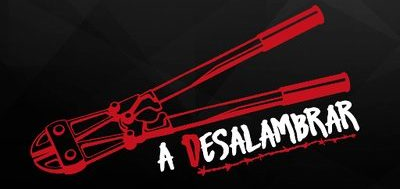 |
Representative of Udalbitza, Basque organisation banned for nine years and then cleared, addresses meetings in Maynooth and Dubl
 Udalbitza, a pan-Basque organisation of town councillors and mayors, was accused in 2003 by the Spanish state of working for terrorism and was banned, its offices closed and its equipment and funds seized. Subsequently 22 of its members were charged with being part of the leadership of ETA, the Basque armed organisation. Earlier this year, although the Spanish State Prosecutor demanded prison sentences of up to 22 years, each of the twenty-two accused was completely cleared in the National Court, as was the organisation Udalbitza itself. “It might be nationalist, but it is not terrorist”, the Judge had said in his verdict.
Udalbitza, a pan-Basque organisation of town councillors and mayors, was accused in 2003 by the Spanish state of working for terrorism and was banned, its offices closed and its equipment and funds seized. Subsequently 22 of its members were charged with being part of the leadership of ETA, the Basque armed organisation. Earlier this year, although the Spanish State Prosecutor demanded prison sentences of up to 22 years, each of the twenty-two accused was completely cleared in the National Court, as was the organisation Udalbitza itself. “It might be nationalist, but it is not terrorist”, the Judge had said in his verdict.
In liaison between the Irish Basque Solidarity Committees and Askapena, the Basque internationalist solidarity organisation, a representative of Udalbitza had come to Ireland to talk about the case. Mikel Munoa was also raising awareness about the repression of the Spanish state against the Basque pro-Independence Left movement.
Mikel described some of the projects undertaken by Udalbitza such as the €400,000 they raised by popular appeal across the Basque Country, for regeneration of a depressed area in the Northern Country (i.e. under French rule). Apart from projects such as that, they had also participated in conferences of indigenous people, people without states and new states, in which they found that all of them were, from different backgrounds and in different languages, saying very similar things about the problems they faced and the rights they needed respected.
Meetings of students in Trinity and Maynooth colleges and later a meeting at a hotel in Dublin city centre were appraised of the facts. They also discussed the extent of Spanish repression of pro-Independence Basque Left movement activists and many of its organisations, youth, electoral platforms, political parties, campaigning groups, newspapers, TV and radio media. Many youth activists have been arrested and tortured throughout the past year, while Askapena itself suffered some arrests too.
Some of the discussion centred around possible cracks in the Spanish repression, taking into account the clearing of the Udalbitza twenty-two some weeks ago by the National Court and of the four from the Egunkaria newspaper early last year. The case of the recent few state-appointed legal representatives and doctors who had concurred that the detainees they visited had been brutalised and had therefore refused to sign an endorsement of the “confessions” was also quoted.
On the other hand it was also commented that the heavy harrassment of the youth activists, their torture and jailing, including the refusal to investigate those claims of torture, continue to be the rule.
People in the meetings also expressed a wish to become more involved in raising Irish society awareness about the situation in the Basque Country. They were encouraged to become active in the Dublin Basque Solidarity Committee or to stay in communication with it on how they might raise the issue within their own circles.
Replying to a query about what now might be the future for Udalbitza, Mikel Munoa said that firstly, they would have to wait and see whether their exoneration verdict would be appealed. Although the State Prosecutor had indicated that he would not be doing so, right-wing Spanish organisations may yet appeal the verdict in the week or so that remains before the deadline. After that, the movement would have to discuss building up the organisation again. “But Udalbitza’s work has been stopped for nine years, so a lot of momentum has been stopped and lot of projects disrupted, as well as funds confiscated (such as the €400,000 for regeneration in the North Country). Also, apart from the worry of having to serve 22 years in prison, some of those arrested spent more than a year in prison. How will we and they be compensated for all that?”
The event was part of International Solidarity with the Basque Country Week, which also saw Mikel Munoa speaking to a meeting of over 30 people in Belfast. A picket is planned there for this Friday in support of Fermin Vila, a Basque living in the city whom the Spanish state is seeking to extradite to their jurisdiction on charges of “terrorism”.
Dublin also saw a demonstration by more than 30 outside the GPO on Saturday and a well-attended solidarity social the same evening. During the afternoon also, someone had hung a banner from the famous Halfpenny Bridge, upon which was painted a call which perhaps summed it all up:
“CIVIL AND POLITICAL RIGHTS FOR THE BASQUE COUNTRY”!
Ends
